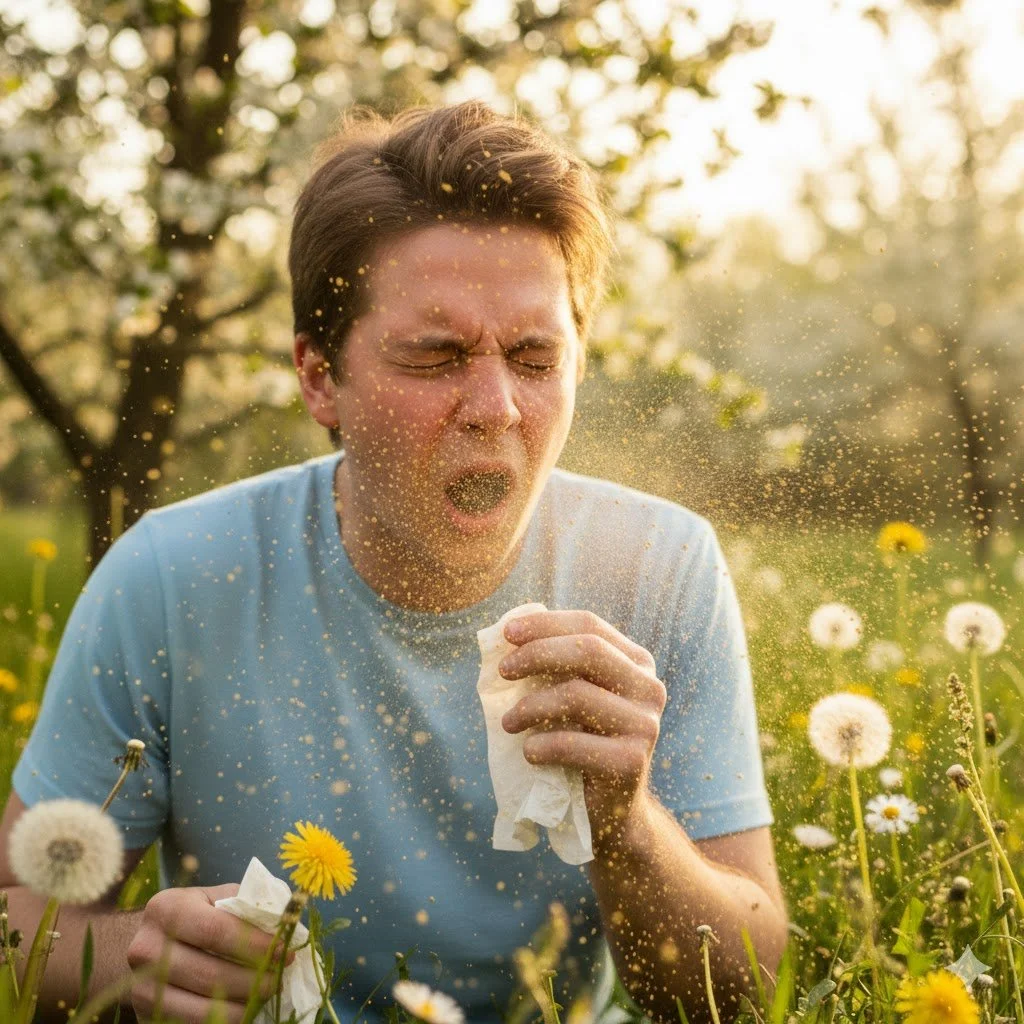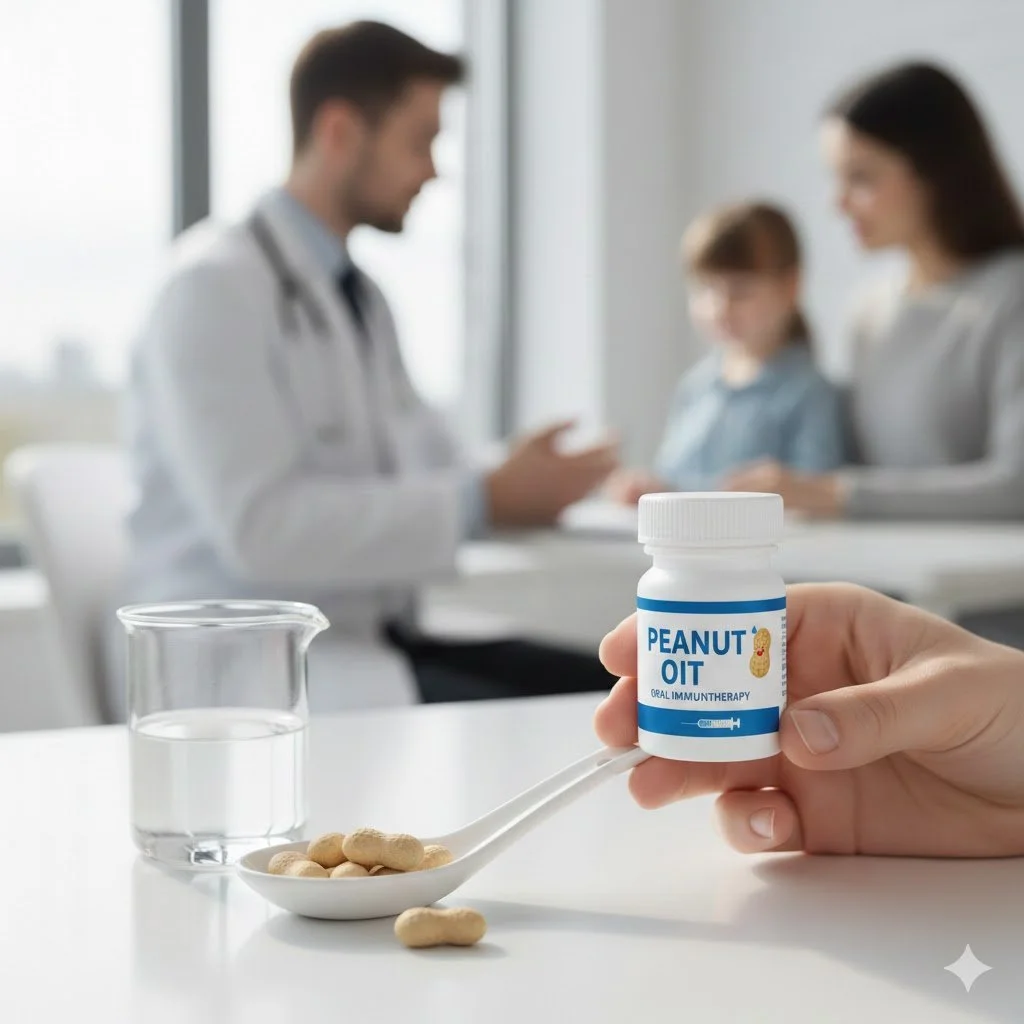London Aero-Allergies: Why they can be troublesome & How to Manage Them
Many Londoners will be living with allergic disease of varying severity, including hay fever, eczema, food allergies, and asthma.
Most patients with one form of allergy will have another allergic disease; for example, at least 30% of children with eczema will have (or develop) a food allergy. The allergic burden can therefore be high and significantly impact the quality of life.
At least 25% of people in the UK will be diagnosed with hay fever. According to the World Air Quality Index, London's combination of dense urban populations, extensive green spaces, and elevated pollution levels creates a unique and challenging environment for individuals with allergies.
Our patients often report an exacerbation of their allergy symptoms when returning to London from travels abroad.
Children born in London, like many other Industrialised countries, have a high allergy burden. This report examines why allergies in London are particularly troublesome, the most prominent allergens affecting residents, and practical ways to manage them effectively.
Why Are My Allergies So Bad in London?
Several Key Factors Contribute to the Severity of Allergies in London:
Pollution Levels
According to the World Air Quality Index, London consistently ranks among the European cities with the highest levels of air pollution. Pollution is detrimental to all human lungs, but particularly so for those living with respiratory allergies. Pollution worsens allergy symptoms, intensifying reactions to pollen and other irritants.
Abundant Green Spaces
London's iconic parks, such as Hyde Park, Kew Gardens, Regent's Park, and Richmond Park, while stunning, produce significant and varied amounts of grass and tree pollen, particularly during the spring and summer months. Pollution facilitates the travel through the air of small pollens. Thunderstorms help liberate pollens, causing thunderstorm asthma.
Urban Heat Effect
Increased temperatures in city centers prolong pollen seasons, further aggravating symptoms for allergy sufferers (Met Office).
Densely Populated Areas
Higher population densities in London mean greater exposure to indoor allergens, such as dust mites. Pet ownership is also common, especially since the COVID-19 lockdowns, which increases the load of dust mite and pet allergies.
Common Aero Allergens Affecting London Residents
Londoners primarily contend with these common allergens:
1. Tree & Grass Pollen
Pollen allergies, commonly referred to as hay fever, peak from early spring through late summer. Grass pollen particularly affects many residents, leading to frequent discomfort.
2. Dust Mites
Dust mites thrive in London's humid indoor environments, particularly in carpeting, bedding, and upholstery. Reducing indoor humidity and regular cleaning help mitigate symptoms.
3. Pet Dander
Pet ownership is high in London and the UK, even more so after the Covid lockdowns.
4. Mould & Dampness
London’s damp climate and relatively high humidity, alongside older housing stock, encourage mould growth, causing respiratory irritation and aggravating asthma symptoms, as noted by the NHS. Indoor moulds are detrimental to the health of all individuals, but pose an increased risk for those living with aeroallergies and asthma.
5. Pollution
According to the Mayor of London's Air Quality, traffic congestion and industrial emissions exacerbate respiratory symptoms, making existing allergies harder to manage and increasing vulnerability to developing new aero-allergies and airway sensitivities.
Effective Strategies to Manage Allergies in London
Practical Measures Can Dramatically Reduce Allergy Symptoms:
Stay Updated with Pollen Forecasts
Regularly check local pollen forecasts (Met Office) to limit outdoor activities when counts are high.
Maintain Indoor Air Quality
Use air purifiers, keep windows closed during peak pollen hours, and regularly clean air ducts and filters.
Medical Interventions
Professional consultation with allergy specialists, such as London Allergy Consultants, can provide effective treatments for hay fever, asthma, and other allergies. After a thorough diagnosis of your allergies is made, we will discuss a personalised approach using a combination of modern medicines and immunotherapy.
Visual Guide: London's Allergy Calendar
Conclusion
Managing allergies in London is achievable by understanding triggers, adopting proactive measures, and seeking appropriate medical advice. Armed with knowledge and practical strategies, Londoners can significantly reduce discomfort and improve their daily quality of life.
Frequently Asked Questions
-
Allergy season typically spans from March to October, with pollen types peaking at varying times throughout this period. Dust mite is a perennial allergen, although levels can vary depending on humidity, ventilation and heat.
-
Yes, air pollution irritates airways, significantly increasing sensitivity to allergens like pollen and dust, according to the British Lung Foundation. Pollution facilitates the travel of pollen through the air.
-
Natural methods like nasal saline rinses can clear pollen from the nasal passages. However, children do not always like doing nasal douching. Locally sourced honey will taste nice, but it has no more pollen than what you could inhale over several days; it has no immunotherapy effect. The nasal and respiratory biome, as well as the gut biome and immune system, can be optimised through a broad, expansive diet, outdoor healthy living, fermentable foods, high fibre intake, and live probiotics (not freeze-dried dead bacterial products). Immunotherapy is, in essence, a natural remedy, based on data from rigorous clinical trials.
-
Yes, persistent or severe allergy symptoms warrant professional medical advice to establish an effective treatment plan.
-
For general health, and allergen reduction (if allergic) reduce dust mite loads and mould loads within the home. If allergic to pets, this is usually to pet saliva (whcih is hen on their dander), learn how to reduce this burden.
Regular cleaning with HEAP products, using allergen-proof bedding and installing air purifiers can reduce allrgen loads.
Worried About Allergies? Let’s Help You Get Answers
If your child is showing signs of a food, pollen, or skin allergy, early diagnosis is key. At London Allergy Consultants, our expert team provides trusted, evidence-based care tailored to your child’s needs. From testing to treatment plans, we guide you every step of the way. We are happy to assess babies (infants), toddlers, young children, adolescents and young adults with allergies.
London Allergy Consultants
London Allergy Consultants is a leading UK centre for diagnosing and treating food and airborne allergies in children and young people.









Sesame Oral Immunotherapy (OIT) has emerged as a Sesame Oral Immunotherapy (OIT) has become a medical therapy for children with severe sesame allergies. Unlike simple avoidance, OIT aims to retrain the immune system by allowing the regular, supervised consumption of small amounts of sesame protein.